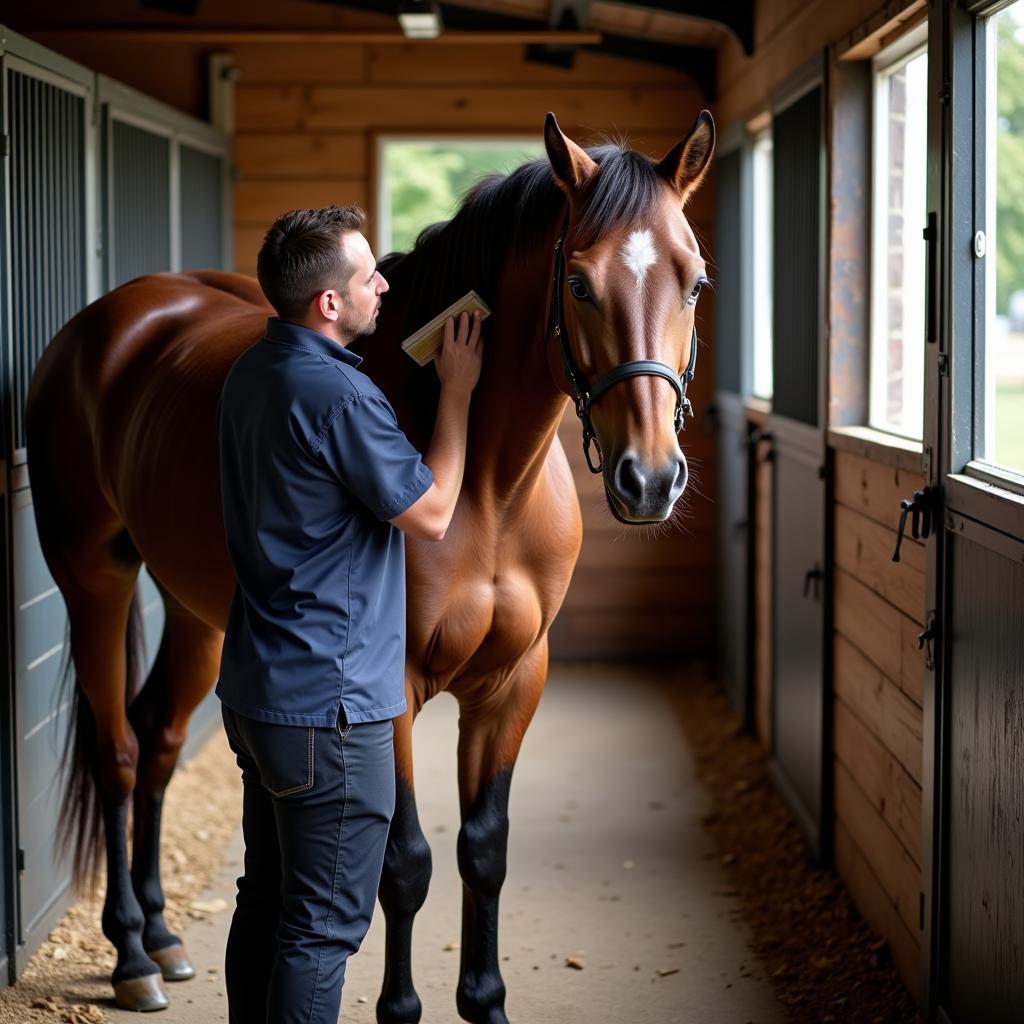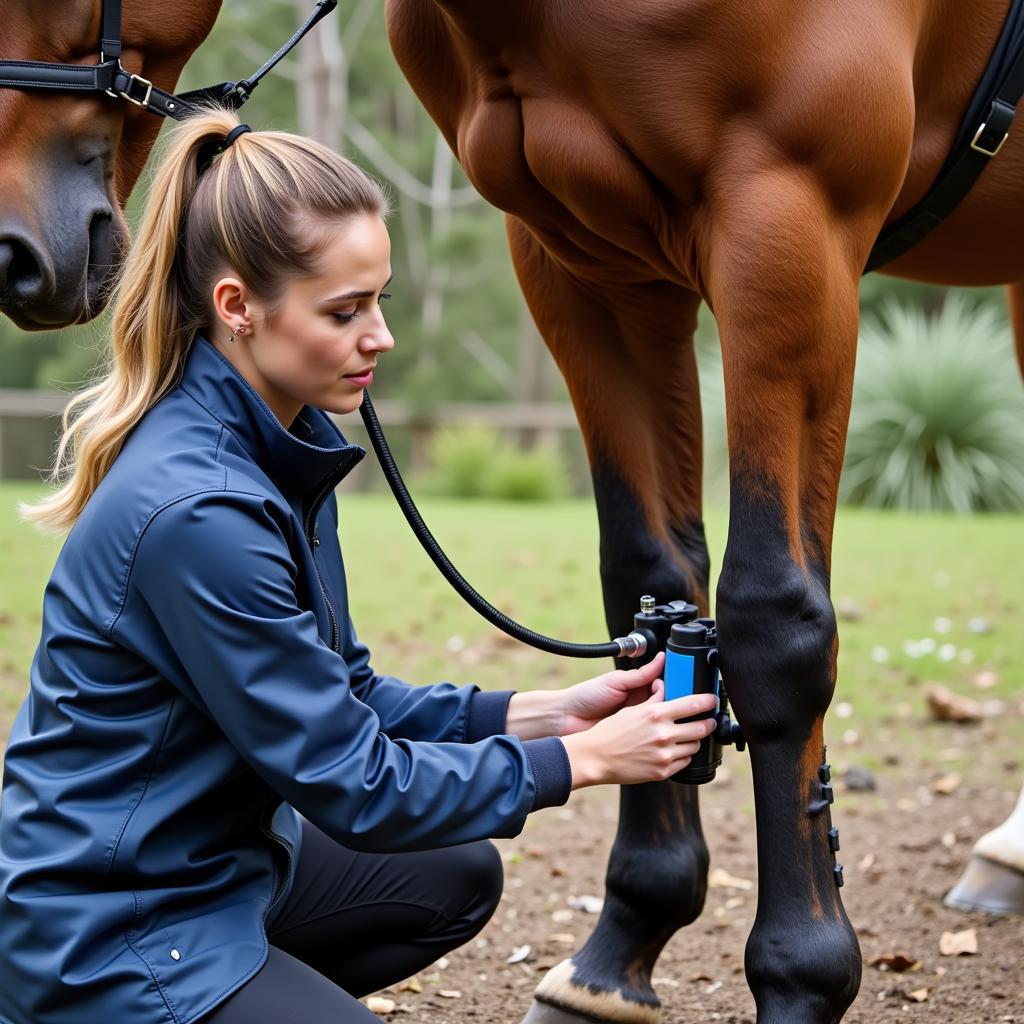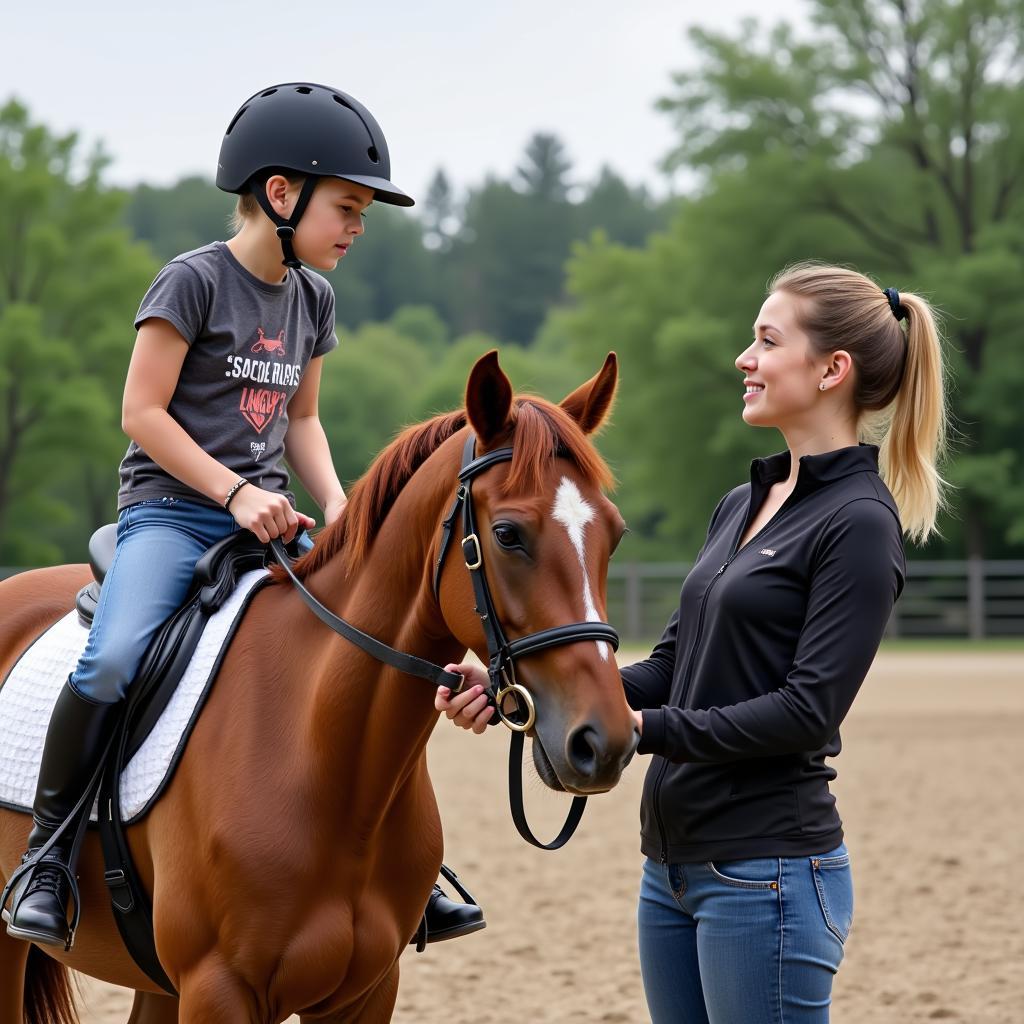Horsemanship Jobs offer a unique blend of passion and profession. For those who love horses, turning that love into a career can be a dream come true. This article explores the diverse world of horsemanship jobs, from traditional roles to emerging opportunities, helping you find the perfect equestrian career path.
Saddle Up for Success: A Diverse Range of Horsemanship Jobs
The equestrian world offers a surprisingly diverse range of career paths. Whether you’re drawn to the competitive arena, the tranquility of trail riding, or the science of equine care, there’s a horsemanship job out there for you. Let’s delve into some popular choices:
-
Riding Instructor: Share your passion and expertise by teaching others the art of riding. This job requires patience, excellent communication skills, and a deep understanding of horsemanship principles.
-
Stable Manager: Oversee the daily operations of a stable, ensuring the well-being of the horses and the smooth running of the facility. Strong organizational and management skills are essential for this role.
-
Equine Veterinarian Technician: Work alongside veterinarians to provide medical care for horses. This demanding yet rewarding job requires a strong stomach, a love for animals, and a willingness to learn.
-
Farrier: Specialize in the care of horses’ hooves, trimming and shoeing them to maintain their soundness and performance. This physically demanding job requires skill, precision, and a deep understanding of equine anatomy.
-
Groom: Provide essential daily care for horses, including grooming, feeding, and mucking stalls. While physically demanding, this role offers valuable hands-on experience and the opportunity to work closely with horses.
 Grooming a Horse in a Stable
Grooming a Horse in a Stable
Beyond the Barn: Unconventional Horsemanship Jobs
Beyond the traditional roles, numerous unconventional horsemanship jobs cater to specialized interests:
-
Equine Therapist: Utilize various techniques like massage, acupuncture, and chiropractic care to improve the physical well-being of horses.
-
Equine Nutritionist: Develop customized feeding plans to ensure horses receive optimal nutrition for their specific needs and performance goals. This role requires a strong understanding of equine physiology and nutrition science.
-
Equine Photographer: Capture the beauty and power of horses through stunning photography, catering to horse owners, breeders, and equestrian publications.
-
Saddle Maker: Craft custom saddles and other leather goods for riders, blending artistry and functionality to create unique and comfortable equestrian equipment.
 Equine Therapist Working on a Horse
Equine Therapist Working on a Horse
Landing Your Dream Horsemanship Job
Finding the right horsemanship job requires proactive effort and strategic planning. Here are some key steps to help you saddle up for success:
-
Identify your passion: What aspects of working with horses excite you the most?
-
Gain experience: Volunteer at stables, assist riding instructors, or shadow professionals in your field of interest.
-
Network: Attend equestrian events, connect with professionals on social media, and join relevant industry associations.
-
Tailor your resume and cover letter: Highlight your skills and experience that align with the specific job requirements.
Horsemanship Jobs: The Rewards of a Horse-Centered Career
Horsemanship jobs are more than just a way to make a living; they’re a way of life. While the work can be demanding, the rewards are immense. From the satisfaction of helping a horse recover from an injury to the thrill of witnessing a student’s progress, a career in horsemanship offers a unique sense of fulfillment.
 Riding Instructor Teaching Student
Riding Instructor Teaching Student
Choosing a horsemanship job is a decision that blends passion and practicality. With a clear understanding of your interests, dedication to developing your skills, and a proactive approach to job searching, you can find the perfect equestrian career path that allows you to live your dream.
FAQs
-
What are the highest paying horsemanship jobs? Equine veterinarians and specialized trainers often command higher salaries.
-
Do I need a college degree for all horsemanship jobs? While a degree can be advantageous, many jobs prioritize experience and practical skills.
-
How can I gain experience with horses? Volunteering at stables, assisting riding instructors, and taking riding lessons are excellent ways to gain experience.
-
What are the physical demands of horsemanship jobs? Many roles involve physical labor, including lifting, carrying, and working outdoors in various weather conditions.
-
Where can I find horsemanship job listings? Online job boards, equestrian publications, and networking within the industry are valuable resources.
-
What qualities make a good horse person? Patience, empathy, good communication, and a genuine love for horses are essential qualities.
-
Are there horsemanship jobs that allow me to travel? Working as a groom for a traveling competition stable or becoming an international equine consultant can offer travel opportunities.
Need further assistance?
Contact us at Phone Number: 0902476650, Email: [email protected] or visit us at 139 Đ. Võ Văn Kiệt, Hoà Long, Bà Rịa, Bà Rịa – Vũng Tàu, Việt Nam. We have a 24/7 customer support team.





